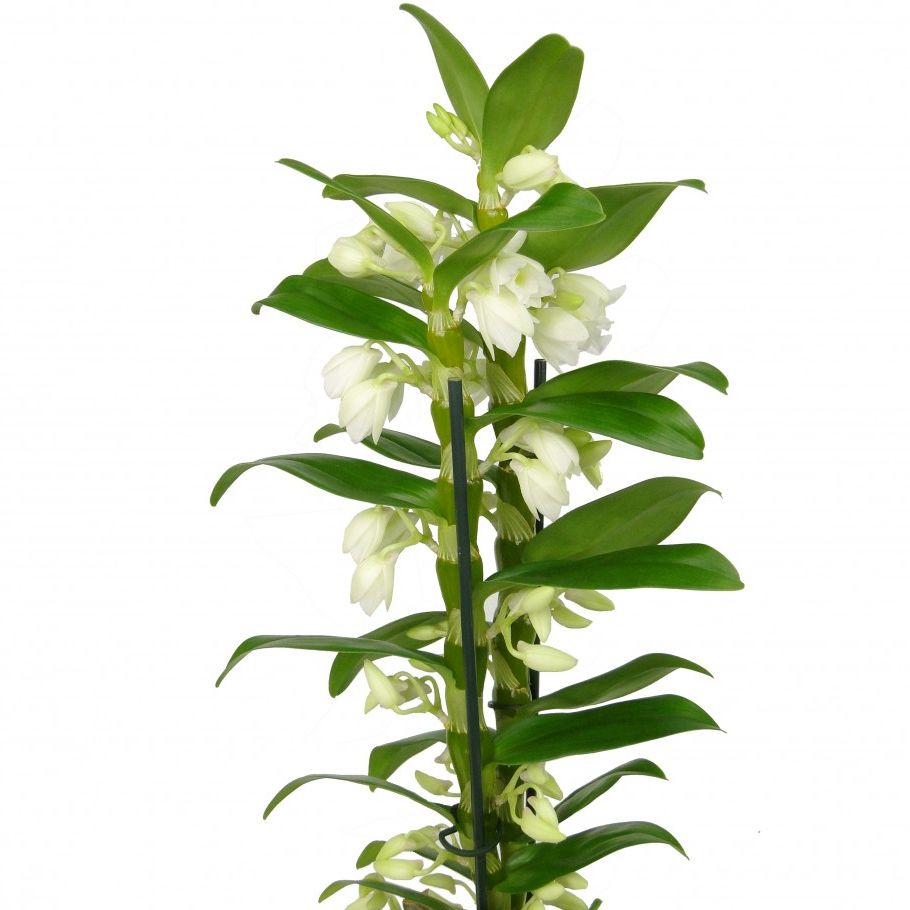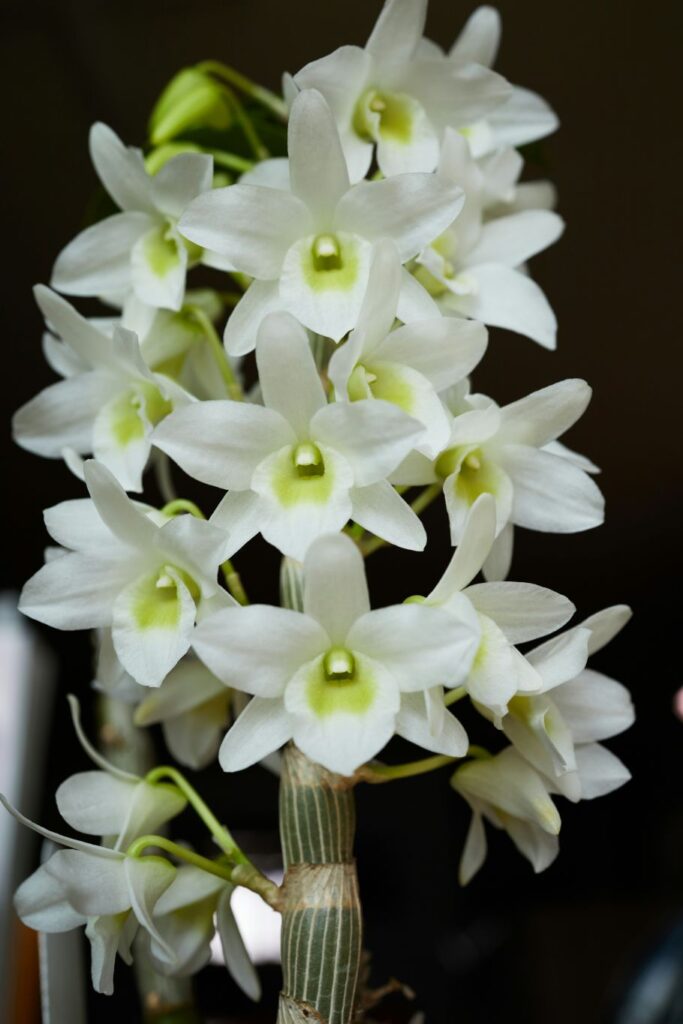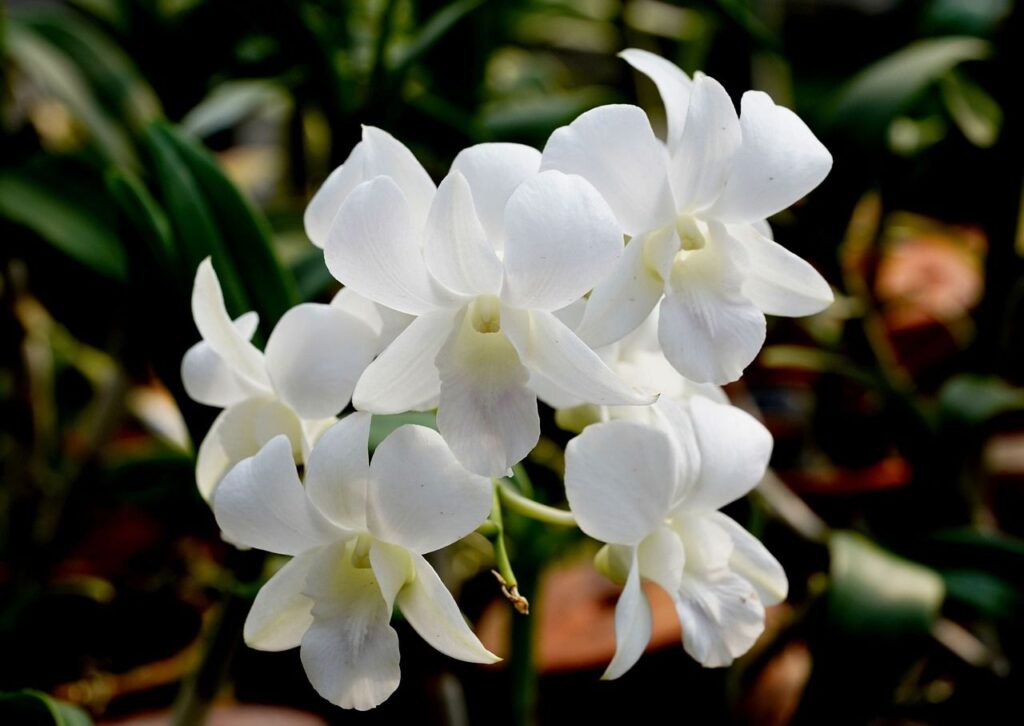The orchid family is one of the largest plant families. It is estimated that there are 20,000 species. The Dendrobium nobilé is an epiphytic orchid. That is to say, it grows in the wild on other plants or trees without extracting food from them. It is originally from the mountainous regions of Southeast Asia. Dendrobium nobilé is one of the rarest orchids on the market.
Distinguishable by its elongated narrow petals and ruffled appearance, the flowers of the Dendrobium ‘Apollon’ give the impression of constant movement, adding a dynamic touch to your home or office decor.
2 to 4 beautiful flower clusters adorn each stalk.
Blooming occurs after sensing a drop in temperature, typically in winter and spring, bringing a touch of seasonal joy to your surroundings.
Each blossom emits a delicate and pleasant fragrance, creating an enchanting atmosphere.
Care guide
Easy to care for plant! Its versatility makes it an excellent choice for plant lovers of all skill levels.
Light
Place your Bamboo orchid in a shaded spot where it will receive plenty of bright indirect light or filtered light.
Water
Water sparingly in the winter. Your plant is dormant and will not be actively growing. The soil should be damp to the touch not sopping and should never dry out. In the spring and Summer or once blooms have appeared, increase the watering (water twice a week). Check every 5 days to make sure the soil is consistently damp.
Temperature
Provide cool temperature in the Autumn and Winter season, 10°C to 15°C. And during the day in Spring and summer keep the temperature warm from 21°C to 24°C.
Nutrition
Recommend using a balanced fertilizer formulated for orchids. Fertilize with every other watering once buds appear into the summer. Cease feeding your orchid after the blooms have fallen off.
Care
Check the axis of the leaves and stem for any mealy bugs. Wipe leaves down gently with a microfiber cloth. Remove dead flowers.
Additional information
Toxicity
The Bamboo Orchid is toxic and not safe for consumption.
Do not put the dendrobium nobilé in a draft like all other plants. After flowering give less water and no plant food.
It produces offsets can be left to grow into new plants or separated and repotted, allowing you to expand your orchid collection and share their beauty with others.
Gallery



